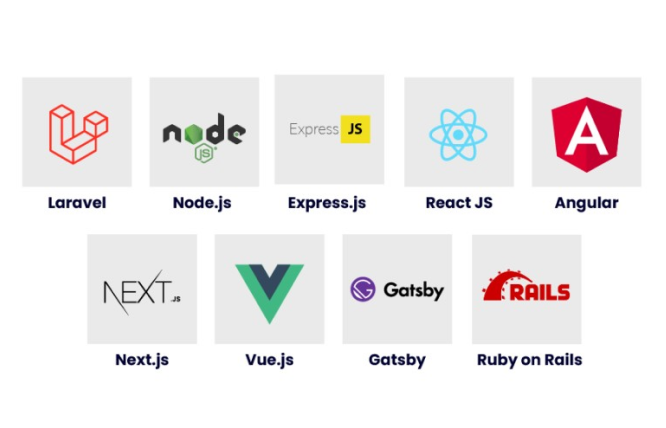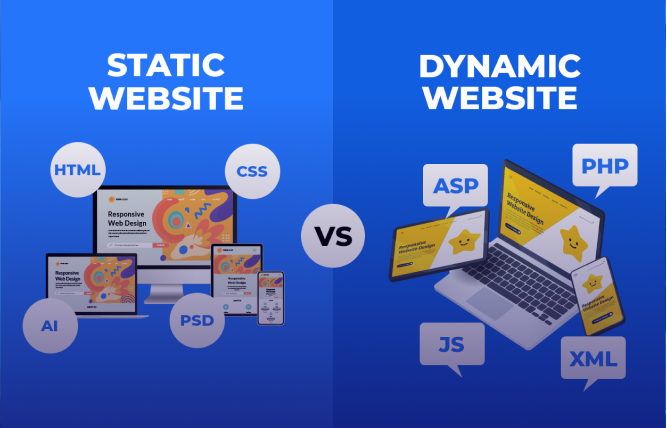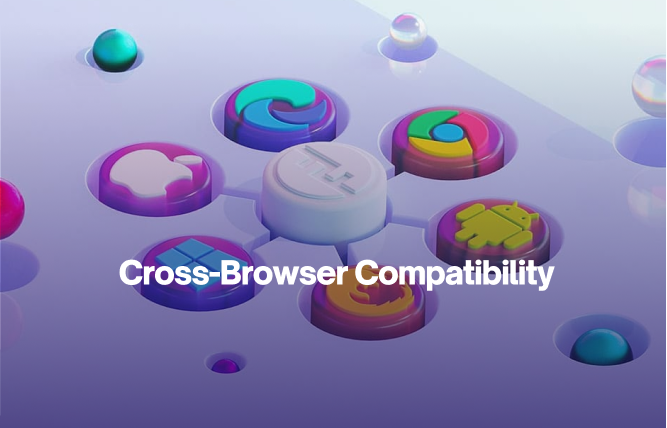Introduction
This blog uncovers the 13 most popular web development frameworks in 2025, showcasing their strengths, weaknesses, and use cases. Find out how these frameworks can enhance your web projects and streamline development processes.
When you get into coding, you’ll hear about frameworks and libraries. Frameworks give you a structured way to build apps, like a blueprint, while libraries are ready-made tools for specific tasks.
With so many frameworks available, each community claims theirs is the best. However, you don’t choose the framework based on popularity, instead, choosing the right one depends on what you need. The right web framework can not only streamline your development process but also enhance your web development speed and lay a robust foundation for your projects.
Let’s explore the most popular web development frameworks of 2025, understanding their strengths and how they can benefit your projects.
Most Popular Web Development Frameworks Trends in 2025
Let’s look at some key trends coming from the most popular web development frameworks scene. First and foremost is the speed, lightning-fast loading times and strong SEO are no longer optional but necessary.
There is a great demand for frameworks that offer server-side rendering (SSR) and static site generation (SSG), providing a combination of speed and SEO advantages.
Google says that a 7% decrease in conversion rates can result from just a one-second delay in mobile loading times. – Source
Front-end frameworks place emphasis on developer experience, concentrating on functionalities that enhance speed. React, Vue.js, and Angular are at the forefront with their efficient workflows and tools for optimising performance.
Back-end frameworks focus on scalability and effectiveness. The emergence of microservices architecture enables developers to construct applications in modular parts, simplifying scalability and maintenance. Moreover, serverless designs are becoming more popular, enabling developers to work on essential features while eliminating the need to oversee servers.
Importance of Choosing the Right Framework
Selecting the most popular development frameworks is crucial. It significantly impacts your development speed, scalability, security, and ease of maintenance.
Here are some key factors to consider when making your choice:
Make sure the framework you choose has a solid backing of a large and active developer community that provides tutorials, forums, and troubleshooting assistance if needed.
Some frameworks are conceptual and can be harder to learn than others. Before choosing the framework, know your skillset and the effort you might have to put in for learning.
Different projects come with different requirements which might change at the last moment. Analyse your project’s specific needs, functionalities, and envision long-term goals to determine which framework offers the best fit.
Frameworks Overview
Now that you know about the importance of choosing the best framework and the most popular web development framework trends of 2025, we’ll delve deeper into the different categories of frameworks:
- Front-End Frameworks – This is responsible for the website’s visual elements and user interactions.
- Back-End Frameworks – The backbone of any software, it handles server-side logic, database communication, and core functionalities.
- Full-Stack Frameworks – The all-in-one solution. It provides a full-scale toolkit for both front-end and back-end development.
It’s important to understand the strengths and weaknesses of each framework when searching for the most popular web development frameworks.
Here is a chart representing the most popular web development frameworks in 2025, followed by overviews, pros and cons, and use cases of some of these frameworks.
Node.js
Node.js is an environment for running code. It lets developers use JavaScript for developing on the server side. The non-blocking, event-driven architecture makes it exceptional at developing rapid, scalable network applications.
Pros and Cons of Node.js
Pros | Cons |
Non-blocking, event-driven | Single-threaded, not suitable for CPU-intensive tasks |
Allows JavaScript on server | Steep learning curve for beginners |
Use Cases of Node.js
- Building fast and scalable network applications
- Real-time applications like chat apps
- APIs and backend services
React
React is a front-end library used to build user interfaces. It has structure-based components that simplify the process of designing interactive user interfaces and controlling intricate state logic.
Pros and Cons of React
Pros | Cons |
Component-based architecture | Steep learning curve |
Virtual DOM for performance | JSX syntax might seem complex |
Use Cases of React
- Single-page applications (SPAs)
- Large-scale web applications
- Mobile app development
jQuery
jQuery is a quick, compact, and fully-featured library for JavaScript. It makes tasks such as managing events, navigating HTML documents, and creating animations simpler, facilitating the development of dynamic and interactive web pages.
Pros and Cons of jQuery
Pros | Cons |
Simplifies DOM manipulation | Can lead to messy code with extensive use |
Cross-browser compatibility | Declining popularity |
Use Cases of jQuery
- Enhancing interactivity on websites
- Animations and UI enhancements
- Legacy code compatibility
Express
Express is a simple yet feature-rich web framework designed for Node.js. It offers strong capabilities for creating web and mobile apps, which is why it is favored for building APIs and single-page applications.
Pros and Cons of Express
Pros | Cons |
Minimalistic and flexible | Lack of built-in features compared to other frameworks |
Use Cases of Express
- Developing APIs and microservices
- Single-page and multi-page web applications
- Backend services for web applications
Angular
Angular is a platform and foundation for creating HTML and TypeScript-based single-page client applications. Created by Google, it provides a complete answer for constructing dynamic and intricate web applications.
Pros and Cons of Angular
Pros | Cons |
Two-way data binding | Steep learning curve |
Dependency injection | Heavy for small applications |
Use Cases of Angular
- Enterprise-level applications
- Complex, data-driven websites
- CMS development services
Next.js
Next.js is a React-based and one of the most popular web development frameworks that allows for server-side rendering and generating static sites. It improves performance and SEO, making it perfect for developing high-performance web applications.
Pros and Cons of Next.Js
Pros | Cons |
Server-side rendering (SSR) | Overkill for small projects |
Use Cases of Next.js
- High-performance web applications
- Static websites and blogs
- Custom website development
ASP.NET Core
ASP.NET Core is a framework for developing modern, cloud-based, and internet-connected applications. It offers strong security functions and accommodates different development approaches.
Pros and Cons of ASP.NET Core
Pros | Cons |
Cross-platform compatibility | Complex for new developers |
Use Cases of ASP.NET Core
- Enterprise-grade web applications
- APIs and backend services
- Custom web development services
Vue.js
Vue.js is a modern JavaScript framework designed for creating user interfaces in a step-by-step manner. Focusing solely on the view layer, its core library is designed for seamless integration with other libraries and current projects.
Pros and Cons of Vue.js
Pros | Cons |
Progressive framework | Lack of corporate backing |
Use Cases of Vue.js
- User interfaces and single-page applications
- Small to medium-sized web applications
- Custom website development
WordPress
WordPress is a versatile platform for building CMSs and different types of websites. It provides robust plugin assistance and a vast community, making it a flexible tool for different web projects.
Pros and Cons of WordPress
Pros | Cons |
Easy to use | Vulnerable to security risks |
Extensive plugin ecosystem | Performance can degrade with plugins |
Use Cases of WordPress
- Blogs and content-heavy websites
- E-commerce websites
- Custom WordPress website development
Flask
Flask is a lightweight Web Server Gateway Interface (WSGI) web application framework in Python. It is created with user-friendly design and versatility in mind, ideal for web applications and APIs of a modest to moderate size.
Pros and Cons of Flask
Pros | Cons |
Lightweight and easy to use | Lacks some built-in features |
Use Cases of Flask
- Web applications and APIs
- Prototyping and small projects
- Custom web development services
Django
Django is an advanced Python web framework that promotes fast development and a clear, practical layout. It contains numerous integrated capabilities and adheres to the “batteries-included” approach.
Pros and Cons of Django
Pros | Cons |
Rapid development | Overhead for smaller applications |
Use Cases of Django
- Complex, database-driven websites
- Content management systems (CMS)
- Custom website design and development
Laravel
Laravel is a reliable PHP framework for web developers. It offers a sleek syntax and strong capabilities, making it perfect for rapidly and effectively constructing modern web applications.
Pros and Cons of Laravel
Pros | Cons |
Elegant syntax and features | Performance can be a concern for large applications |
Use Cases of Laravel
- Modern web applications and APIs
- E-commerce platforms
- Custom Laravel website development
Ruby on Rails
Rails, also known as Ruby on Rails, is a web application framework for server-side development that is written in Ruby. It adheres to the convention-over-principle and is recognised for its simplicity and speed in building web applications with databases.
Pros and Cons of Ruby on Rails
Pros | Cons |
Rapid development | Performance can be an issue for CPU-intensive tasks |
Convention over configuration | Learning curve for beginners |
Use Cases of Ruby on Rails
Ruby on Rails well-suited for:
- Startups and MVPs that aim to launch quickly and iterate rapidly based on user feedback.
- Content Management Systems (CMS)
- E-commerce platforms
Conclusion
Congrats! You’ve conquered the web development framework jungle and discovered the hottest trends of 2025. Remember, the ideal framework serves your project’s unique needs.
Here’s your cheat sheet to pick the right tool:
- Define your goals: Building a blog or a complex e-commerce platform? Different projects require different frameworks.
- Know your team’s skills: Leverage existing expertise or embrace learning a new framework together.
- Research, explore, repeat! Dive into frameworks that catch your eye. Check out documentation, tutorials, and online communities to understand their strengths and weaknesses.
Armed with this knowledge, you’re ready to select the perfect framework and build incredible websites in 2025!
Choose a framework that empowers you to build exceptional websites – blazing-fast, secure, and user-friendly. So, pick wisely with FuturByte’s guidance, and get ready to dominate the web!
Keep learning and adopting new frameworks and technologies. And don’t fret if you don’t have the expertise. With FuturByte as your partner, you get a fully functional web application.
As professionals in web and app development, FuturByte can guide you through framework selection and craft a custom solution that perfectly aligns with your project’s vision.
Frequently Asked Questions
Node.js, React, jQuery, Express, Angular, Next.js, ASP.NET Core, Vue.js, WordPress, Flask, Django, Laravel, Ruby on Rails.
Choose the framework based on your project needs. For example, React can be used for dynamic UIs, Node.js can be used for scalable backend services, and WordPress can be used for CMS development services.
Consider factors like project requirements, team expertise, and community support. For custom website design and development, analyse whether you need a front-end, back-end, or full-stack solution.
Yes, keep an eye on emerging frameworks that offer better performance, easier integration with website optimization services, and advanced features for custom web development.
WordPress itself is the go-to framework for WordPress website development, offering extensive plugins and themes for customisation.
Have questions or feedback?
Get in touch with us and we‘l get back to you and help as soon as we can!




